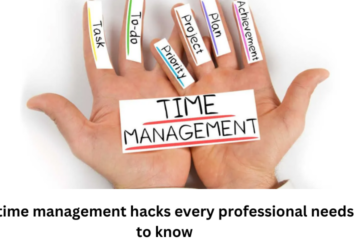It’s sometimes hard to believe just how massive an industry online gaming is. It’s estimated there are more than 2.4 billion mobile gamers alone. Unfortunately, where there is tech, there are always going to be hackers.
According to CNBC’s report, even the popular games are now vulnerable to hackers. Alex Hamerstone from TrustedSEC said that game developers are now more cautious with their codes and looks for any suspicious patterns to catch hackers. In fact, some developers even use anti-cheat software to try and prevent hacking.
Here, then, are some of the biggest security lessons to learn from online gaming hacks:
Minecraft shows the risk of malware
As one of the most popular games in the past decade, it’s no surprise that Minecraft has been targeted by multiple hackers. In fact, more than 50,000 game accounts were found to be infected by malware.
How had they been infected? By downloading ‘skins’ from the official website – the malware hadn’t been detected before the skins were uploaded. This showed the danger of assuming that just because a download is official, it doesn’t guarantee it’s safe.
Steam and data breaching
In 2011, Steam suffered a serious data breach. The result? The attackers managed to make away with login details for the discussion forums and – far more seriously – they made away with a huge amount of both ID and credit card data.
Not only that, they were able to steal a lot of other linked personal information on Steam users, including which games they’d bought, their email addresses and their personal addresses.
While Valve later denied any of the information had been misused, the Steam hack was a stern lesson in keeping all of your personal financial information stored, rather than simply re-entering it when making purchases.
Gamigo and the password breach
Free online gaming websites are far from immune to hackers, with the online site Gamigo suffering a sustained attack in 2012. The result was that more than 11 million passwords were uploaded online once the website had been breached.
The passwords were uploaded to a forum shortly after, but that wasn’t the main concern. The biggest problem was that the hackers had linked them to other online accounts, including email providers such as Hotmail, Yahoo and Gmail.
The message was pretty clear: some Gamigo users had been using the same passwords across the web, making it easier for hackers to match the accounts. It was a serious lesson in using different passwords.
Consoles users aren’t safe either
A hangover from the days where the hardware and software of consoles were more simple, consoles inherently feel safer than PCs to many gamers.
Unfortunately, the Sony Playstation Network hack that took place back in April 2011 proved otherwise. Because of the Playstation’s popularity, it was estimated that as many as 77 million accounts were hacked as a result, and the whole network stopped working. Eventually, Sony were forced to close the whole network down for a full 23 days as a result of the hack.
This hack was both another lesson in keeping credit card information stored, and also in thinking that consoles are less likely to suffer hacking attacks. In fact, by most estimations, this remains one of the biggest hacks of the millennium. With 94 million people now estimated to play PlayStation online every month, and 64 million additional online Xbox players, that’s a substantial console user base who are potentially vulnerable.
Outdated systems can be your weak spot
It can be troublesome for some gamers to update their software or platforms every now and then, but experts say this small thing can be very lethal to your security online. Software that is outdated can be a way for criminals to infiltrate your system and files. This is awht happened to the case of Equifax when an unpatched web framework led to the breach of 145 million critical data including social security numbers, credit card details, and addresses.
But, experts are now saying security vulnerabilities are not only apparent to softwares but also in hardware and firmware. So, it’s a must to consider getting one of those vulnerability scanners available out there that can help you identify unpatched systems. It’s highly recommended using risk management processes to easily figure out which software or systems pose the biggest risks.
Take note, vulnerability scanning and patching should be done regularly to avoid greater security problems.
Password cracking is still apparent
You may take password creation lightly but hackers have created their own sophisticated software or tool to crack or guess your passwords. The method is called Brute Force wherein through a trial-and-error method, a program can provide someone a list of possible potential passwords to certain accounts. Whilst it’s a tedious and time consuming process, there’s still a chance for your account to get breached if your password is weak.
Currently, the only way to avoid Brute Force is by creating a strong password that a decryption program cannot easily guess. You can use a passphrase that is easier for you to remember but difficult to crack or create a password that is a mix of capital and lower case letters, numbers and signs.
So, what are the main takeaways you can learn from online gaming hacks?
• Firstly, you should consider setting up an email address solely for gaming. This way, a data leak is less likely to mean your personal information is attacked.
• Ensure that you are very careful about downloading ‘shared’ software such as gaming skins or custom characters. Just because they’re shared on an official page does not mean they’re safe.
• Always try to use strong passwords, and vary them across your different accounts. With the number of passwords that are now required in 2020, consider using a proper password manager and creator to help you.
• Be wary of free games. Many free games are abandoned by their creators once they’re uploaded. Therefore there’s no guarantee they’re maintained in terms of security and can leave loopholes for clever hackers to exploit.
• Avoid keeping your financial information stored in accounts. OK, we understand: you don’t want to type out your credit card number every time. But seriously, would you rather type it in once every few days, or have your financial information leaked online? You might not realize that’s the choice you’re making until it’s too late!
• Always use anti-virus, anti-malware and anti-spyware software. There’s no excuse for not doing this: there are perfectly efficient free versions of the software available online. Use them.
And above all, stay aware. Educating yourself about online gaming threats can help you keep up with the latest potential gaming security issues, and how to protect yourself from them.








